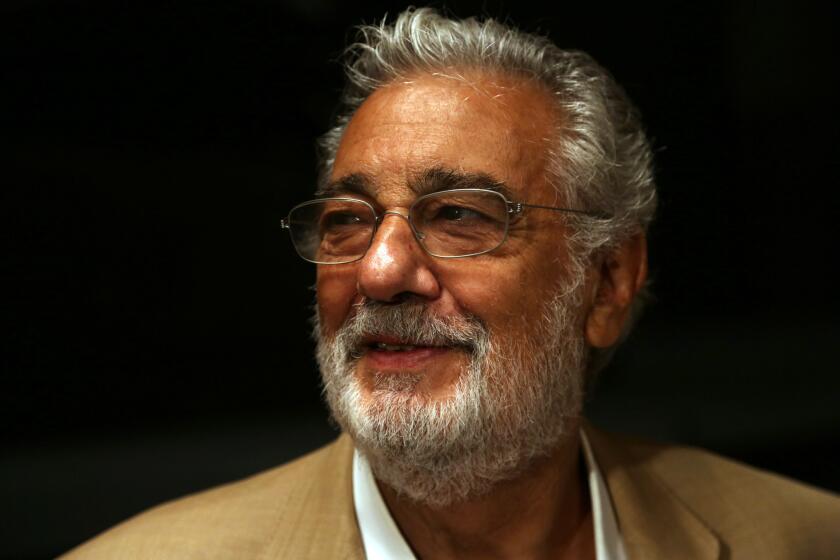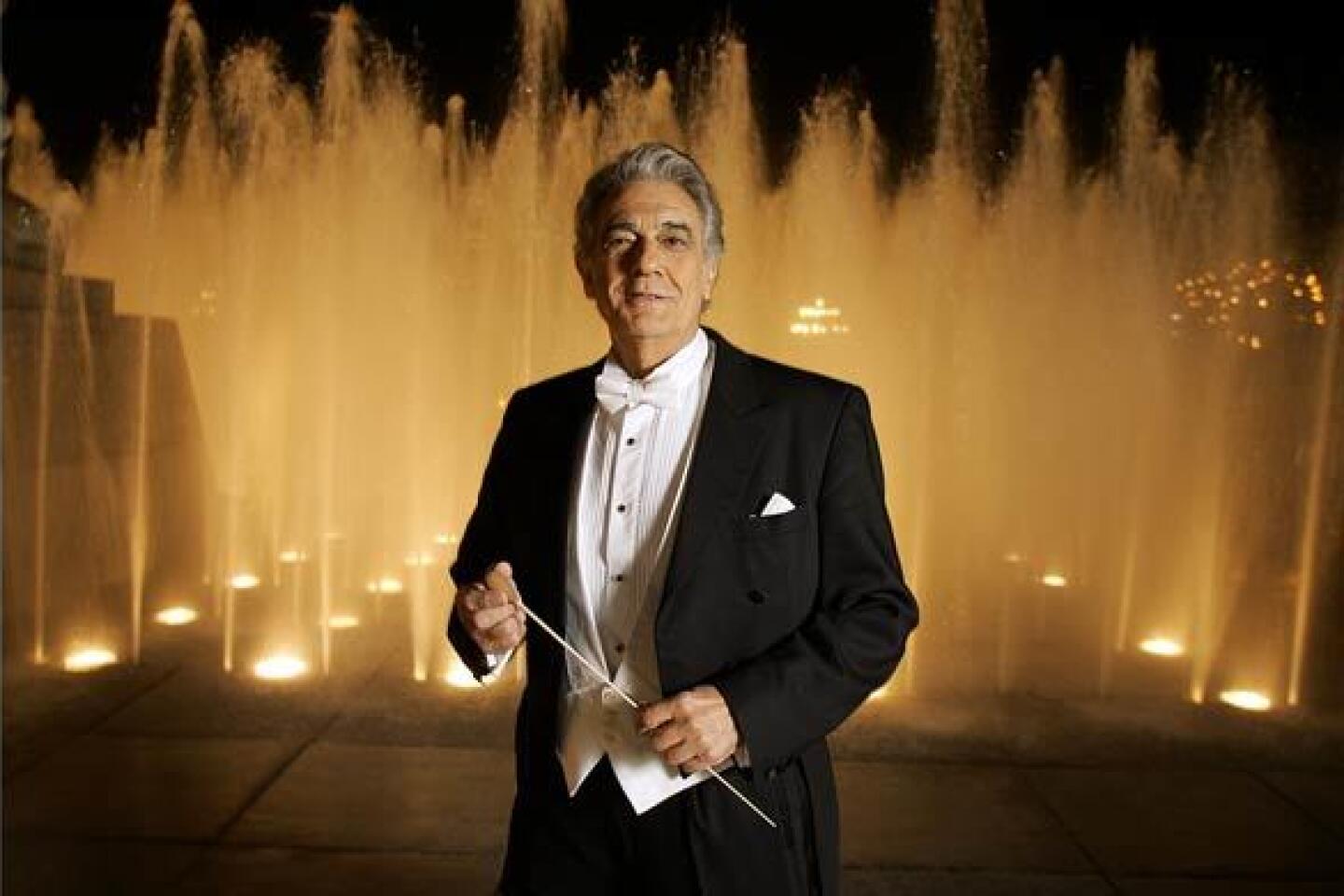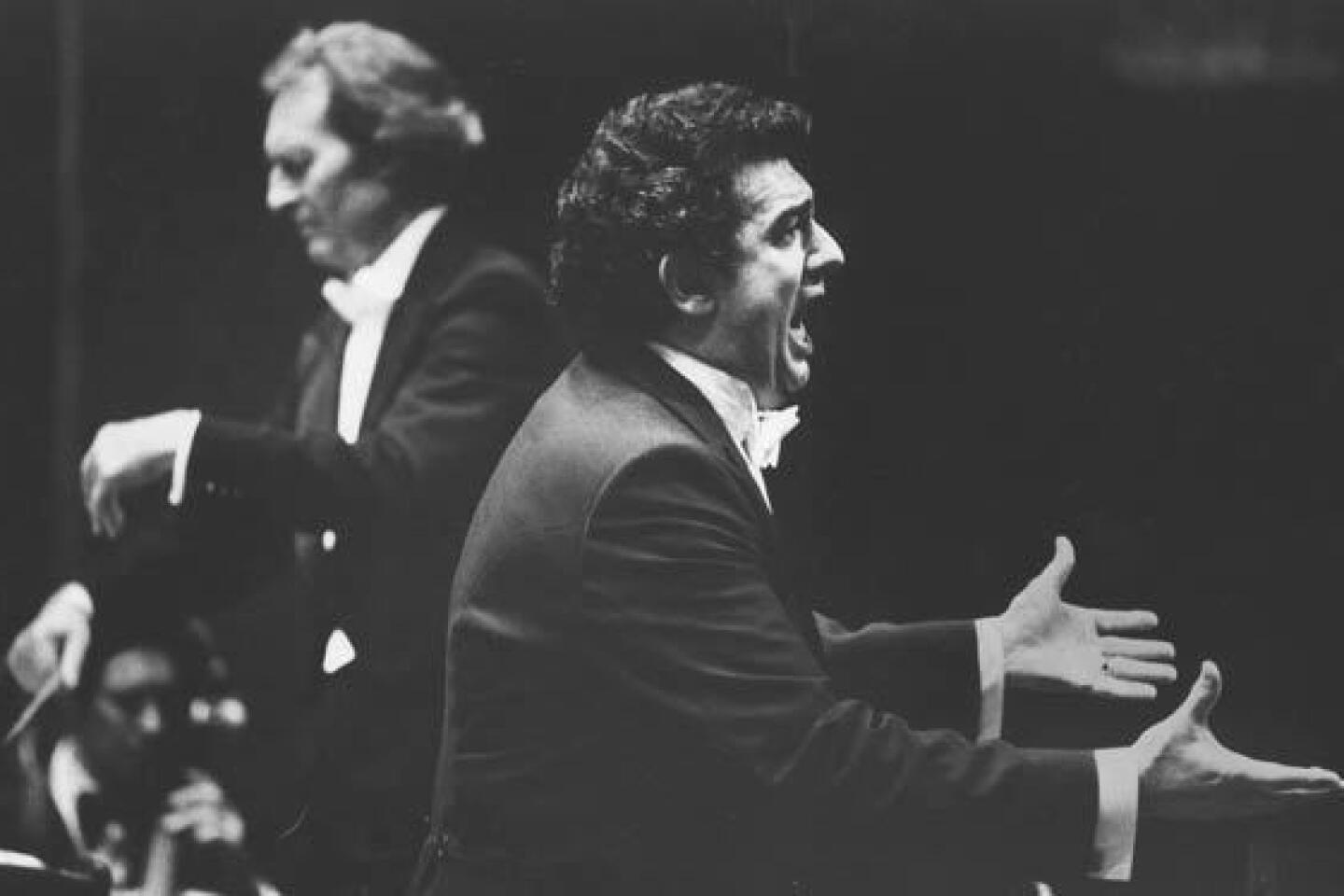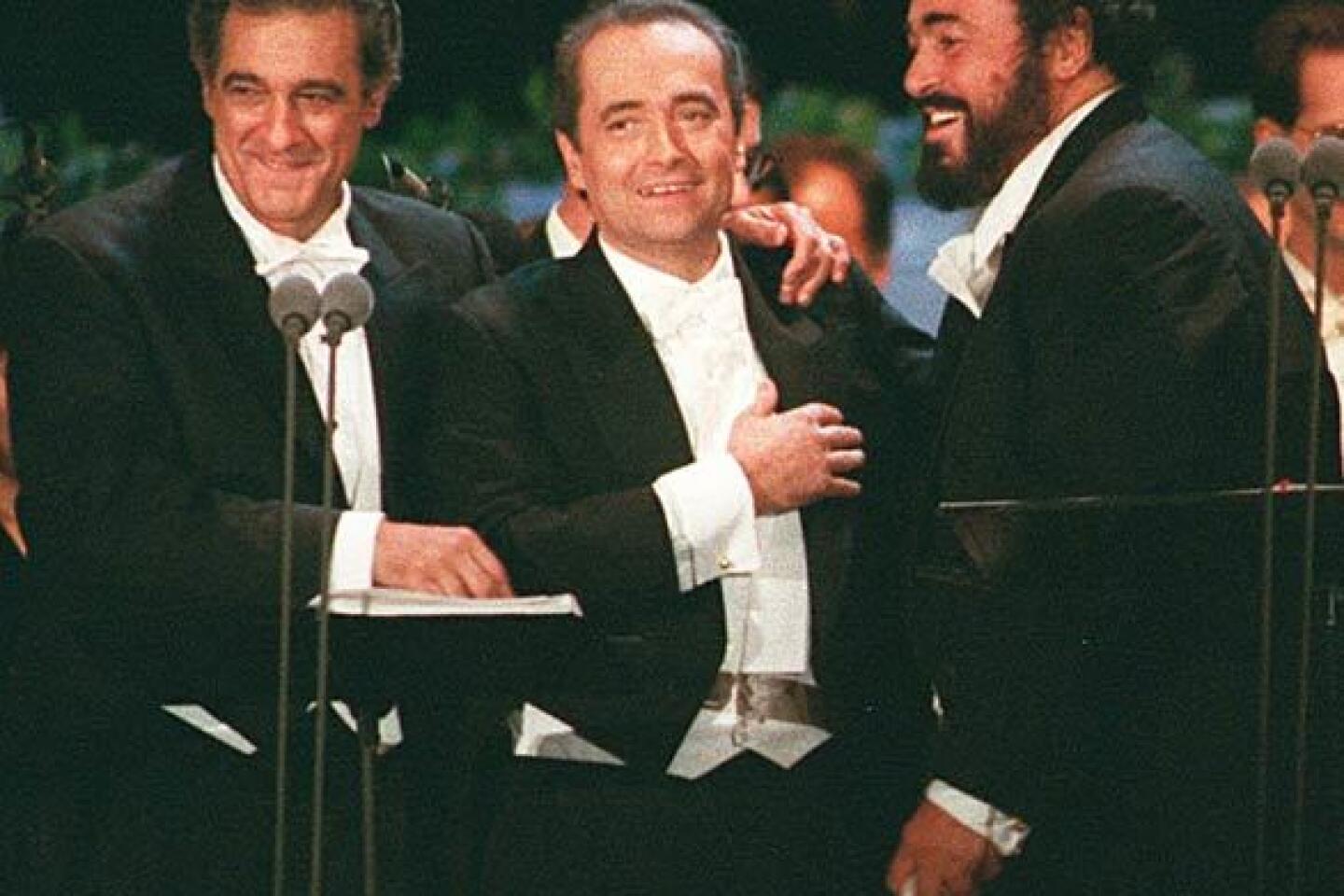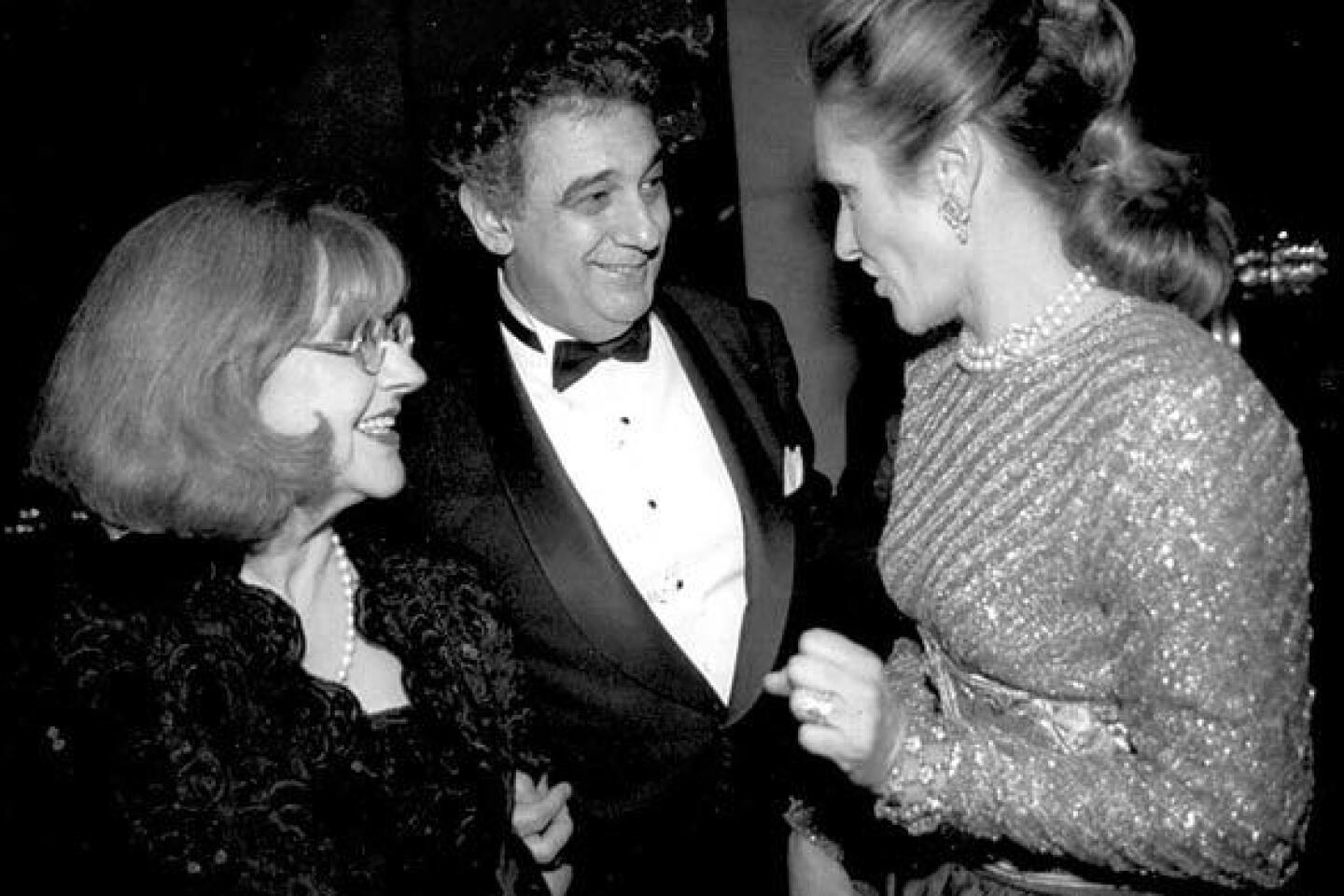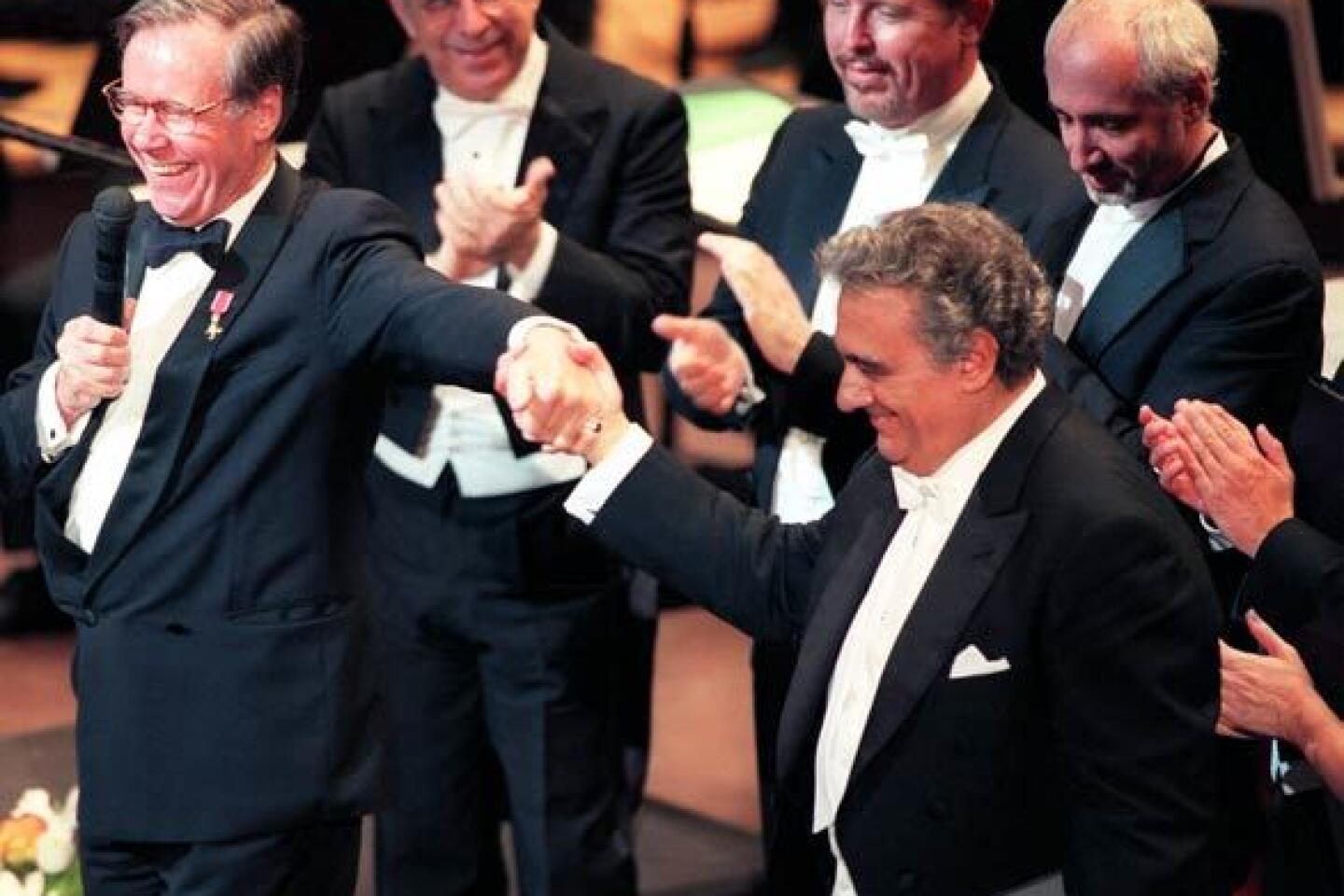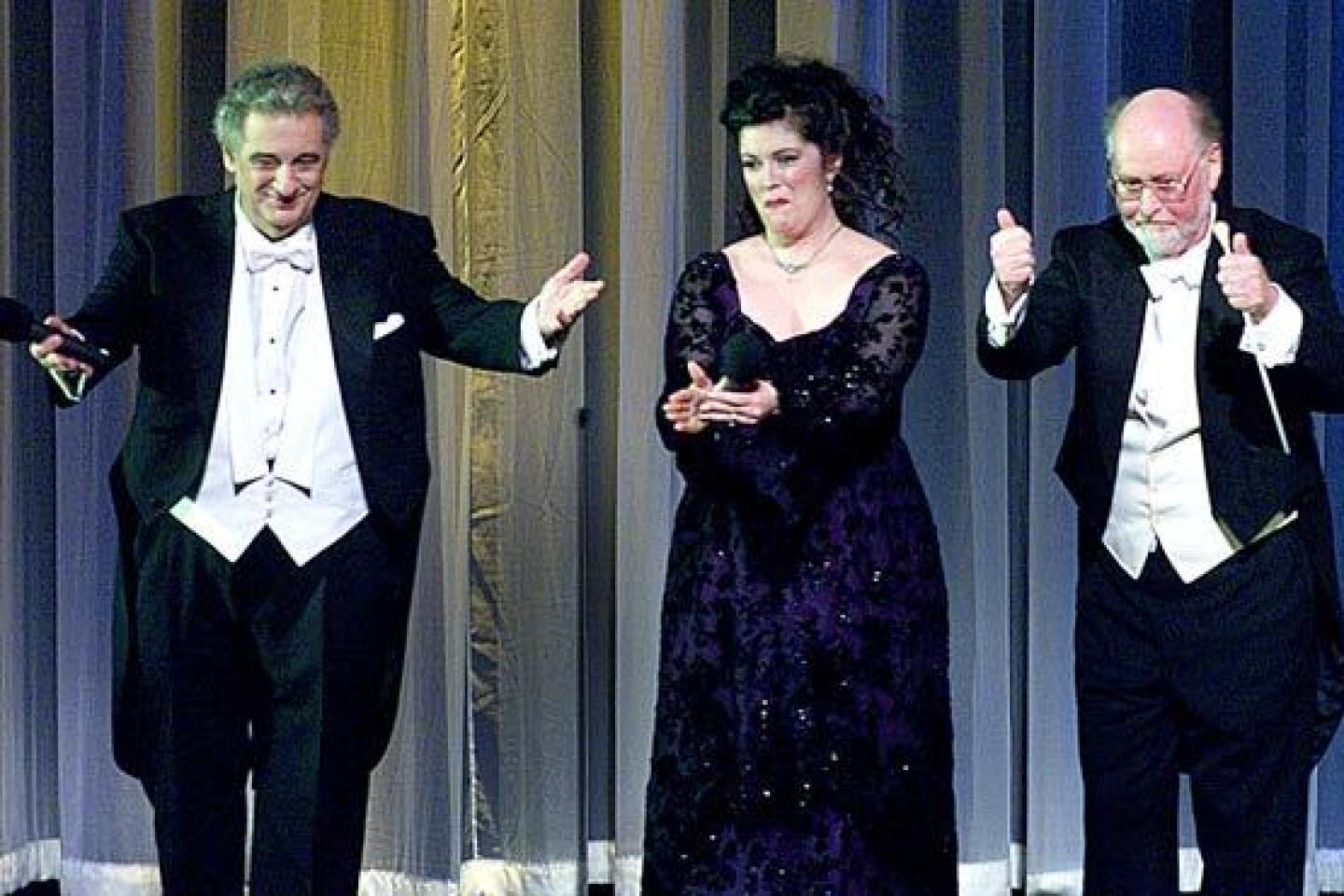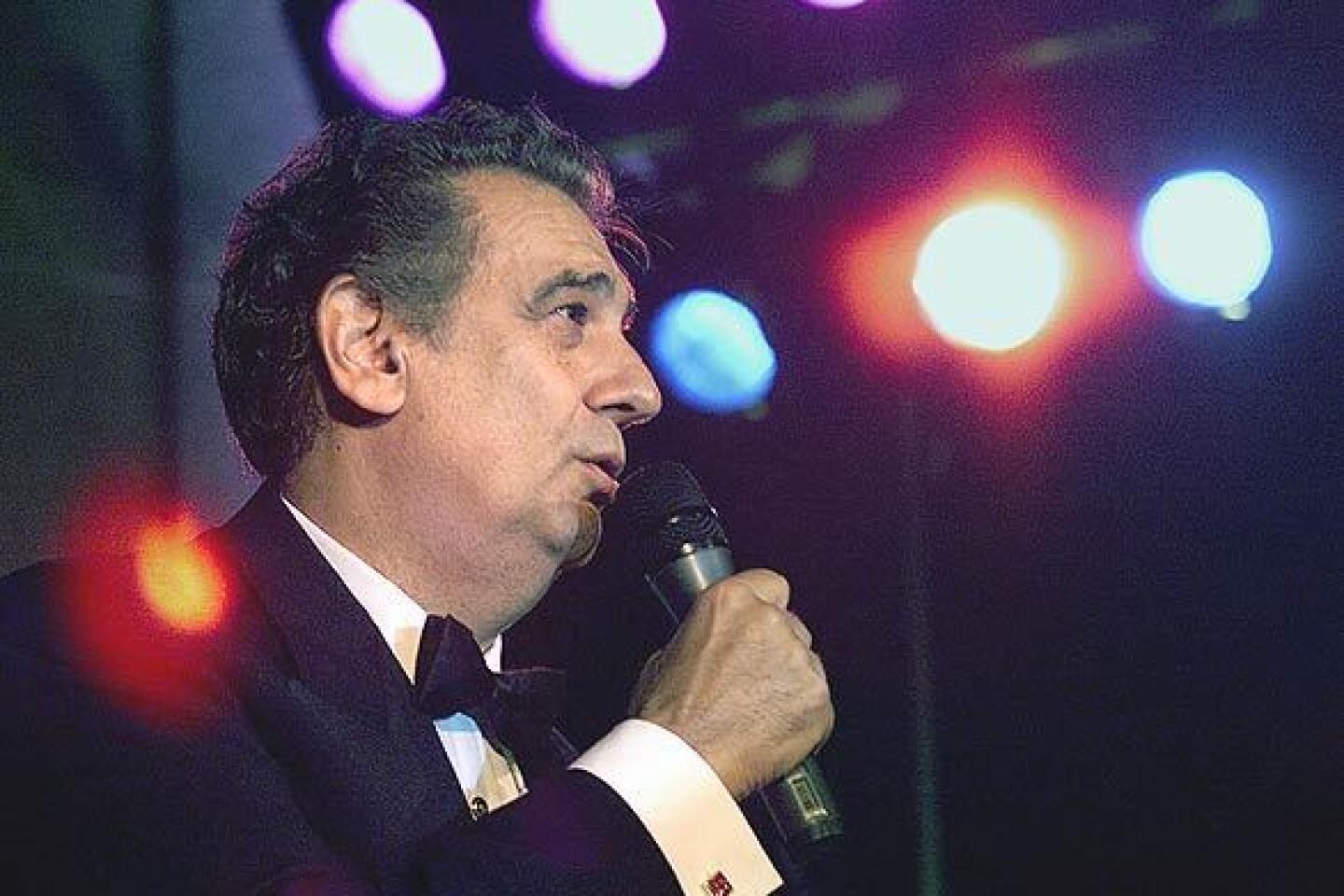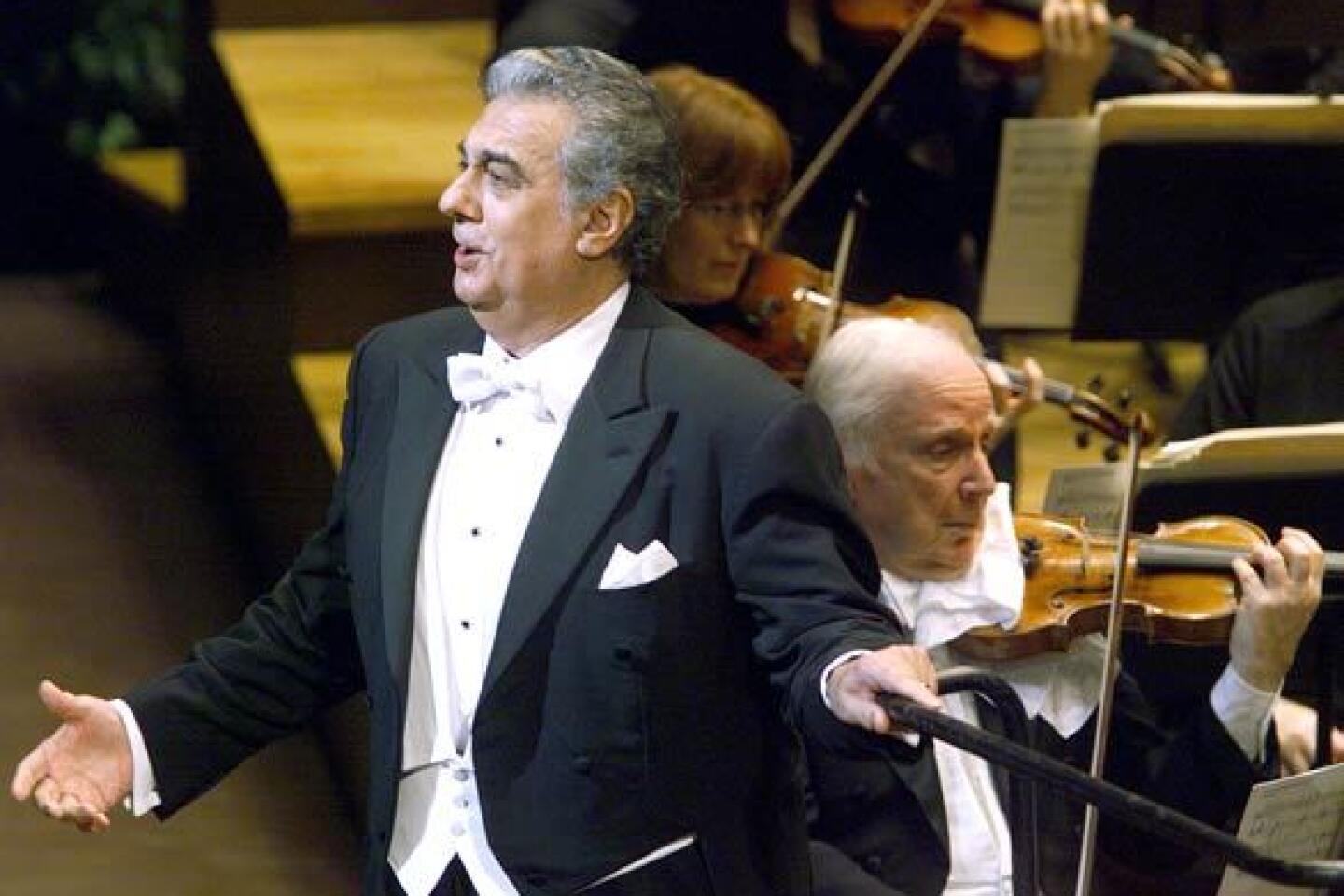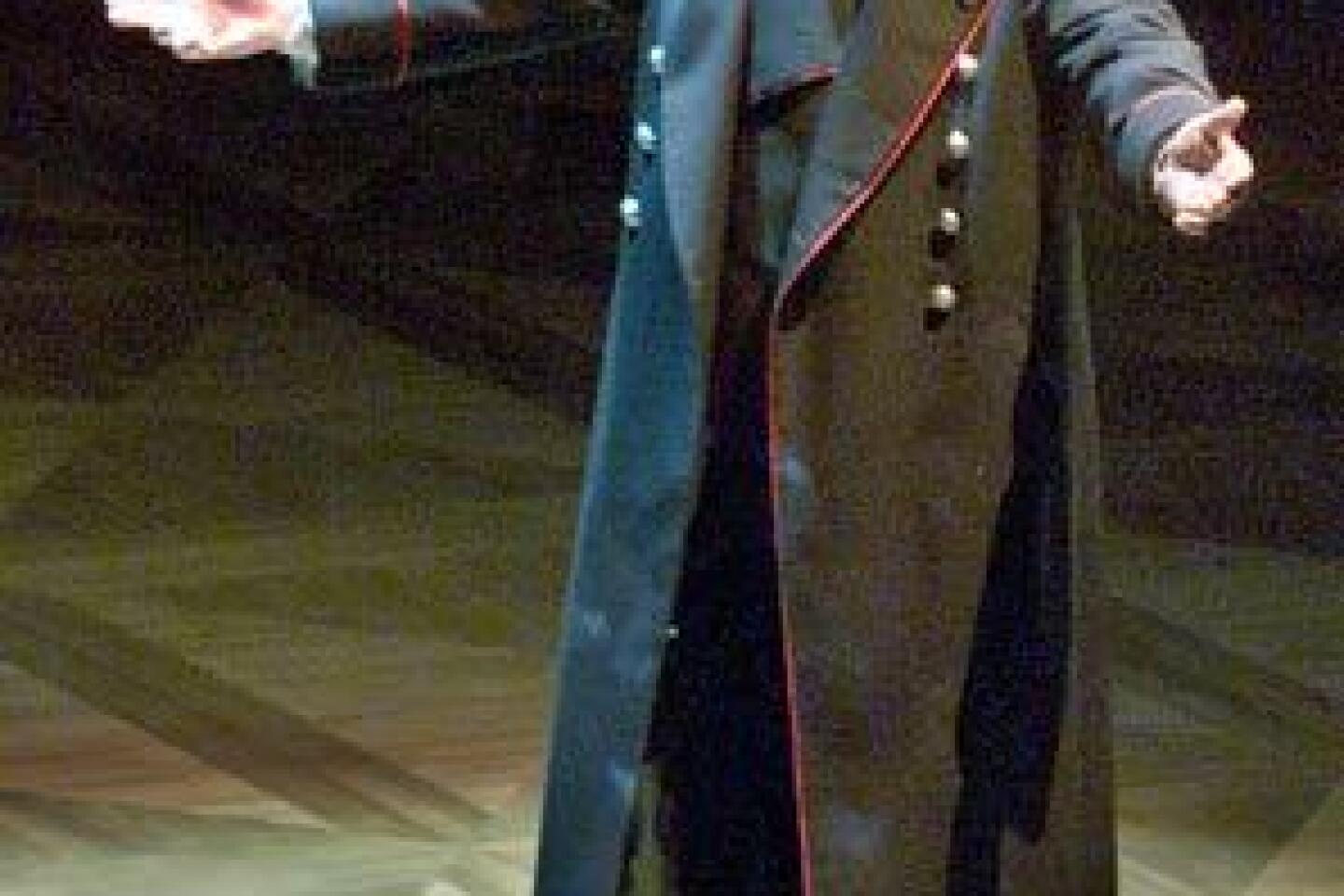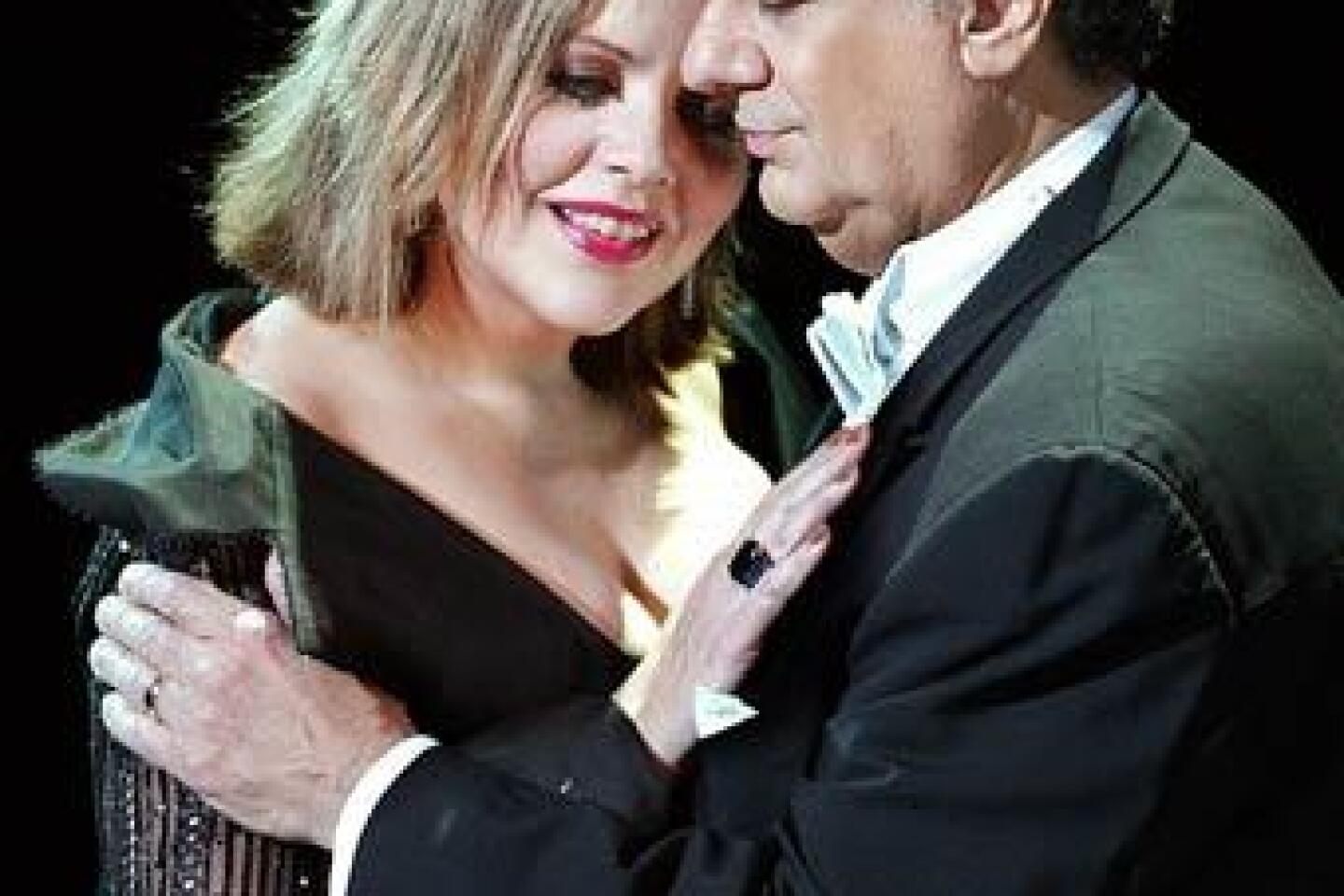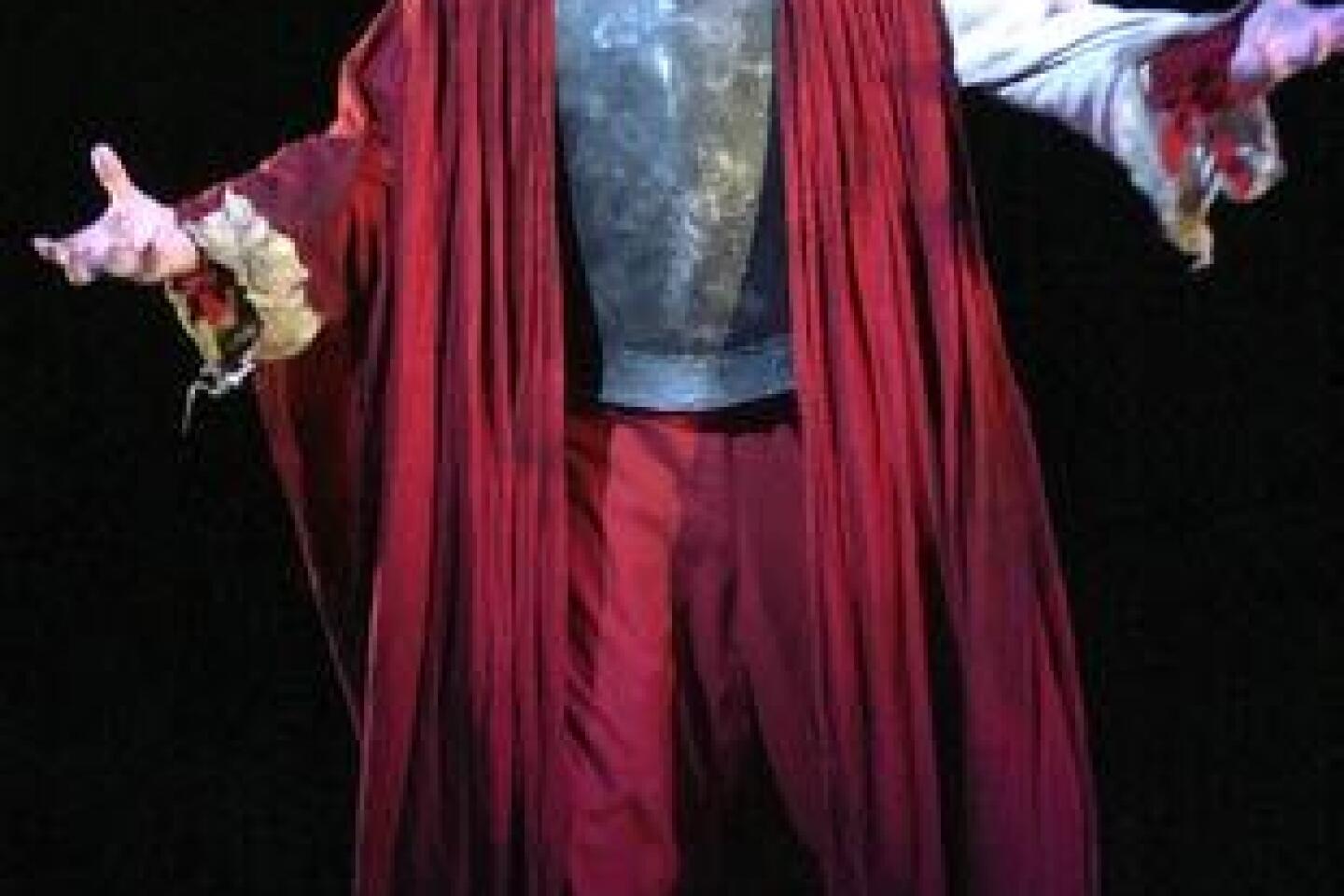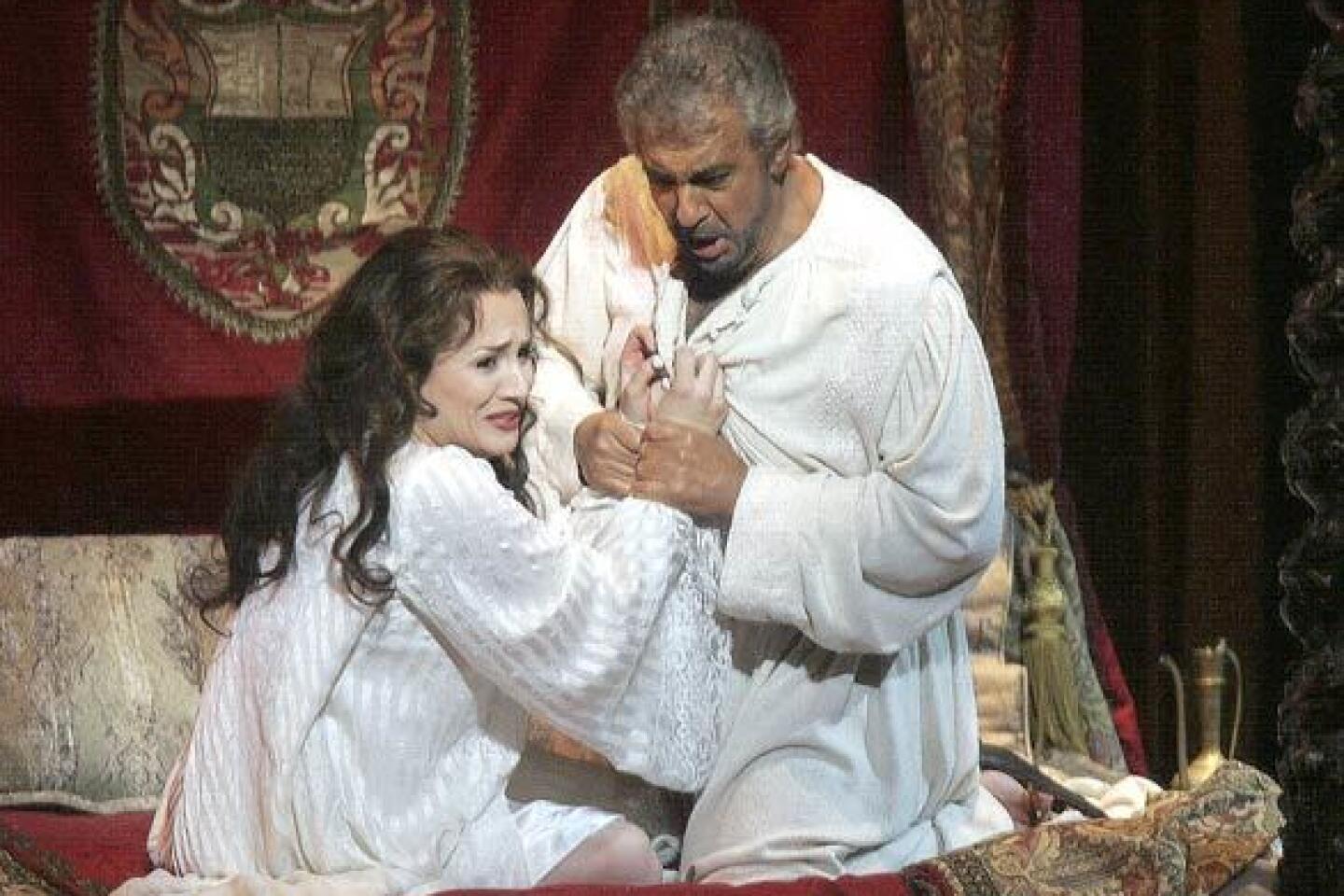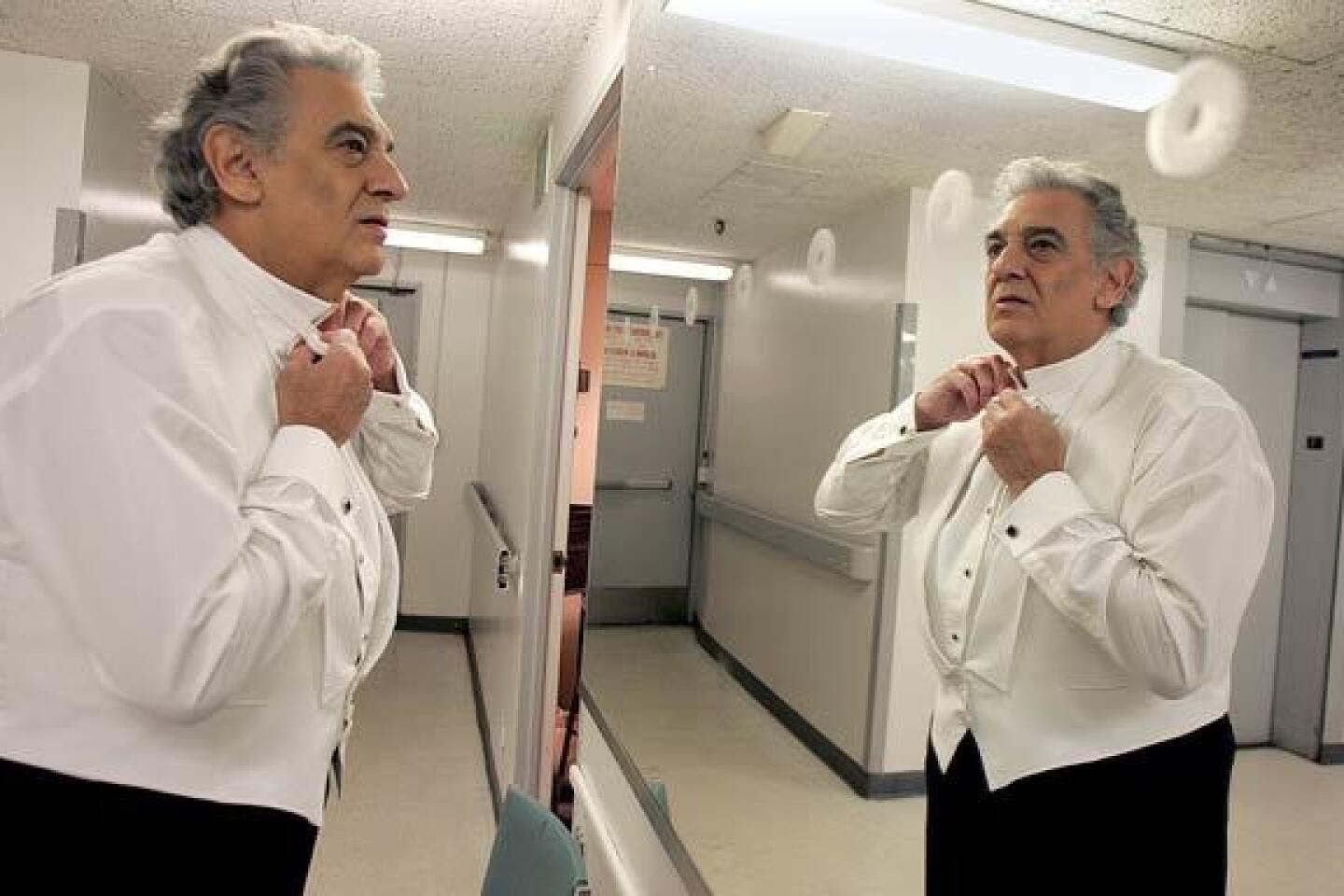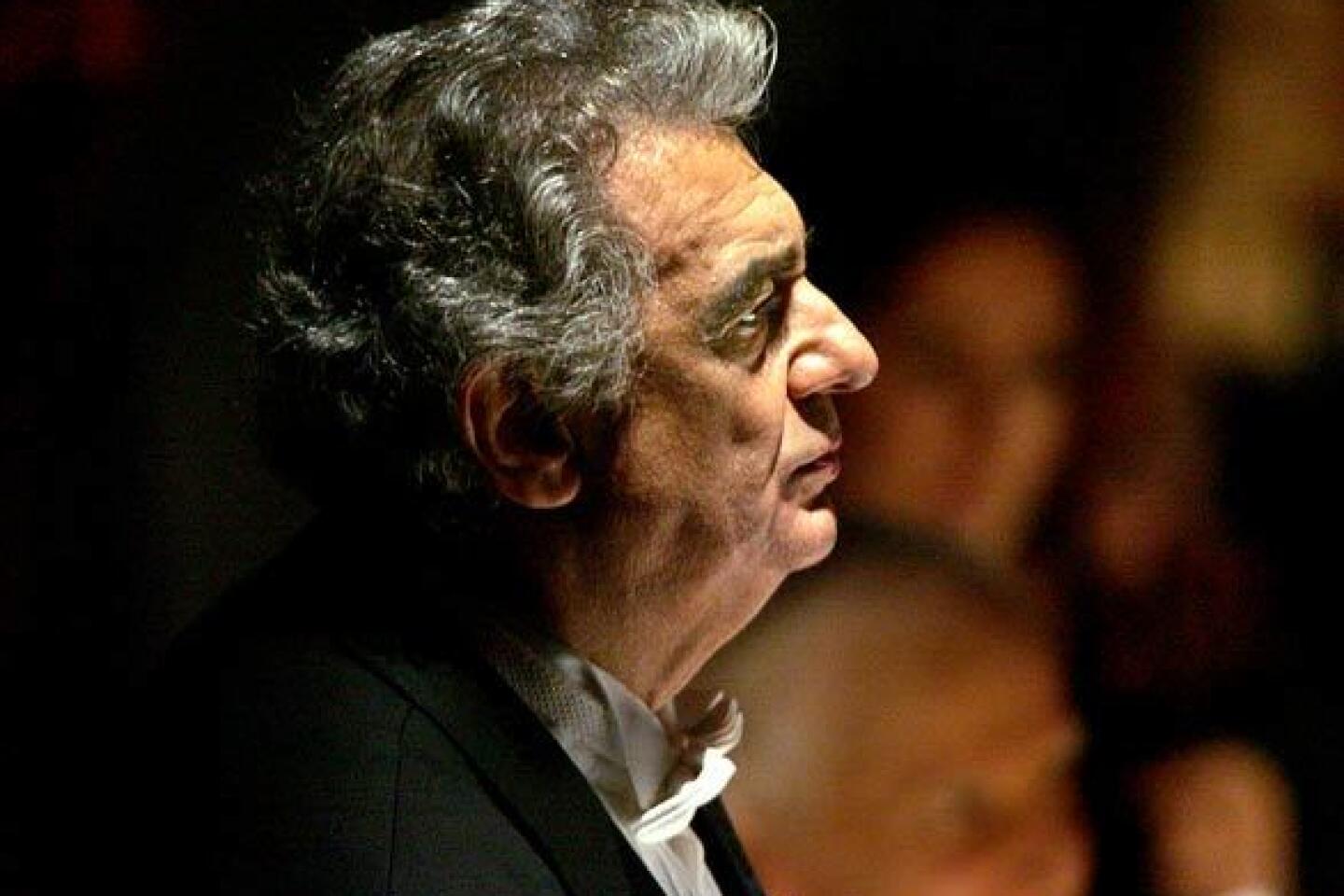Opera’s Plácido Domingo denies abusing power, seeks to clear name
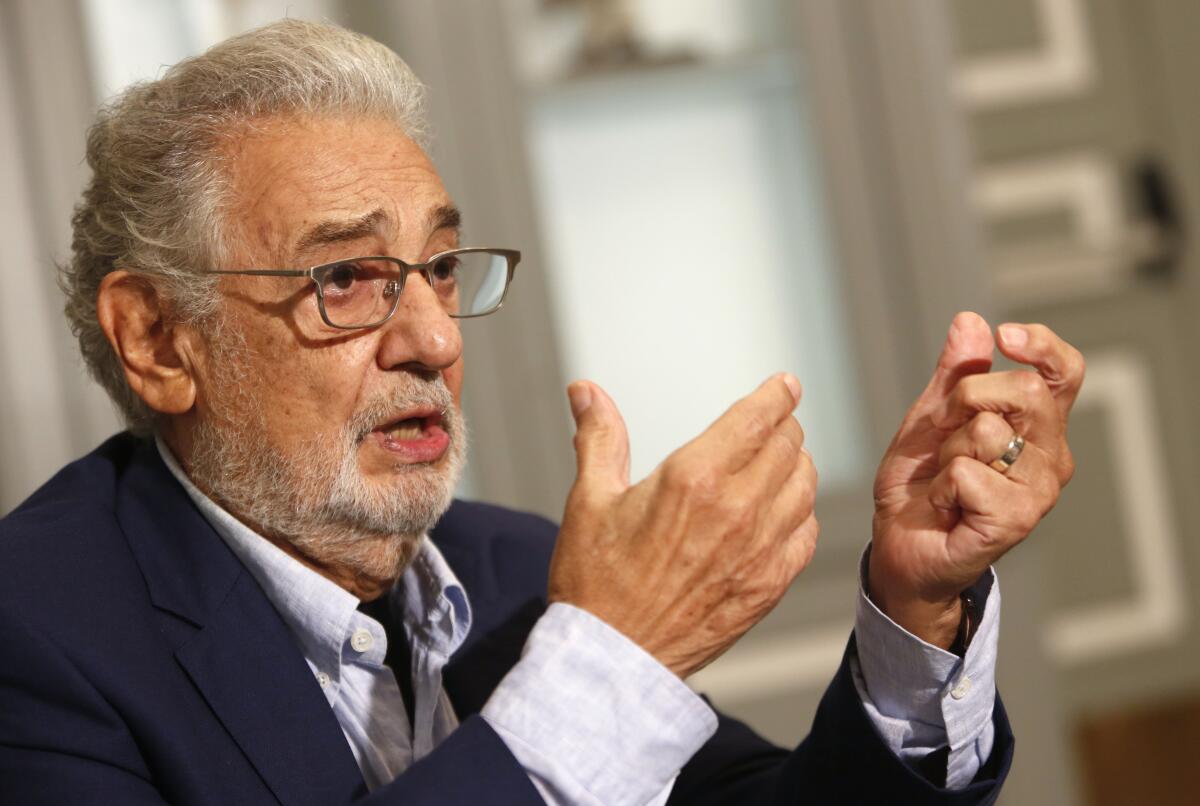
- Share via
Opera legend Plácido Domingo denied ever abusing his power during his management tenure at two U.S. opera houses in an interview with The Associated Press on Sunday, as he embarks on a full-throttle campaign to clear his name after two investigations found credible accusations he had engaged in ‘“inappropriate conduct” with multiple women over a period of decades.
Domingo deflected direct questions about whether he ever sexually harassed women, accusations that were first reported by the AP last summer. The allegations have crippled his career in the United States, as well as his native Spain.
“I never promised a part to a singer, or never take a part from a singer,” he said. “I have spent my whole life helping, and you know, encouraging and driving people.” He added that responsibilities within opera companies are divided, meaning he never had sole sway over casting decisions.
“People that deserved to sing were singing,” he said.
Multiple performers told the AP that Domingo harassed them and abused his power while he held management positions at Los Angeles Opera and Washington National Opera. Numerous women said Domingo had dangled career opportunities as he pursued sexual relationships with them and then withdrew the offers or stopped hiring them when they rejected his advances.
Investigations by LA Opera and the American Guild of Musical Artists found the sexual harassment allegations to be credible. LA Opera did not find he had abused his power, but AGMA found a clear pattern of such abuse, according to people who spoke to the AP on condition of anonymity because they were not authorized to disclose the findings.
Two of Domingo’s managers and a spokesperson briefly cut off the interview when the singer was asked to respond to the fact that both investigations had found the sexual harassment accusations credible and that one had found a pattern of abuse.
Accusations of harassment against Plácido Domingo dating back to the 1980s raise many questions, and generate a statement of denial from the opera legend.
AGMA has never released the full report of its findings, but Domingo’s team referred to two written statements by the union -- one for the public and one for members -- neither of which mentioned abuse of power. They also cited Washington Opera never launching an investigation as an indication that such allegations were baseless.
“Never, never, never,” Domingo said, when asked again if he had misused his power as a manager.
Domingo put the focus on the abuse of power allegations during a wide-ranging interview in the library of his Naples hotel. It has emerged as his main line of defense against the accusations that tarnished a year in which he celebrated his 50-year anniversaries at both Milan’s La Scala theater and Arena di Verona.
The star tenor, who has moved into baritone roles, has emerged from a bout with coronavirus that put him in the hospital in Mexico for 10 days in March with a mission to rehabilitate his opera career as he approaches his 80th birthday.
“It was really a big blow when we got – both my wife and me – we got the coronavirus. It was a terrible impression because for a singer, one’s lungs are very important,” he said, noting that his singing training might ultimately have made him resilient and helped him recover.
Recognizing that the virus could lead to death, “you make decisions that if everything goes well, we need to fix many things in life,” he said.
In Domingo’s response to the accusations in AP’s initial story, he had said he recognized “the rules and standards by which we are — and should be — measured” had changed over the decades. And earlier this year, he issued a statement after the union findings were leaked to the AP, saying of the women who accused him that he was “truly sorry for the hurt that I caused them. I accept full responsibility for my actions.”
I have never behaved aggressively toward anyone.
— Placido Domingo
But after Spain, his native country, canceled his engagements, he quickly walked back the apology, insisting in a new statement that “I have never behaved aggressively toward anyone.”
Asked what he meant in his first statement about the rules changing, Domingo responded, “The problem is that so much time has passed. I must, what we are trying to do, is clear my name, above all for my family.”
He said he hopes he can smooth out what he sees as a misunderstanding with Spanish officials’ responding to press reports without speaking directly to him so he can once again perform in the country where his parents once ran the Zarzuela light opera house in Madrid.
Domingo said he sees his return to stages in the U.S. as less likely. He forfeited his AGMA membership, saying he realized he no longer would be welcome at New York’s Metropolitan Opera or at LA Opera, which he helped found, and that he is likely to sing only through the 2021 and 2022 seasons.
“It’s very sad for me not to be able to sing ... in the United States. I enjoy it so much,” Domingo said. “For over a half-century ... the public has been really, really extraordinary.”
In Europe, Domingo has a full singing and conducting schedule for the fall, mostly concentrated in Italy, Germany and Austria, that started with a Saturday concert in nearby Caserta, where he demonstrated that his voice had not been harmed by the virus.
“A concert like yesterday, or like I am doing in Verona this week, is easy. It is not a complete opera,” Domingo said. “I wonder how it will be when I get to Vienna at the beginning of September to do a whole production. I don’t know how we will do the staging, or how close the singers will be. We don’t have masks on, and we are making a big effort. It is going to be very complicated.”
More to Read
The biggest entertainment stories
Get our big stories about Hollywood, film, television, music, arts, culture and more right in your inbox as soon as they publish.
You may occasionally receive promotional content from the Los Angeles Times.
